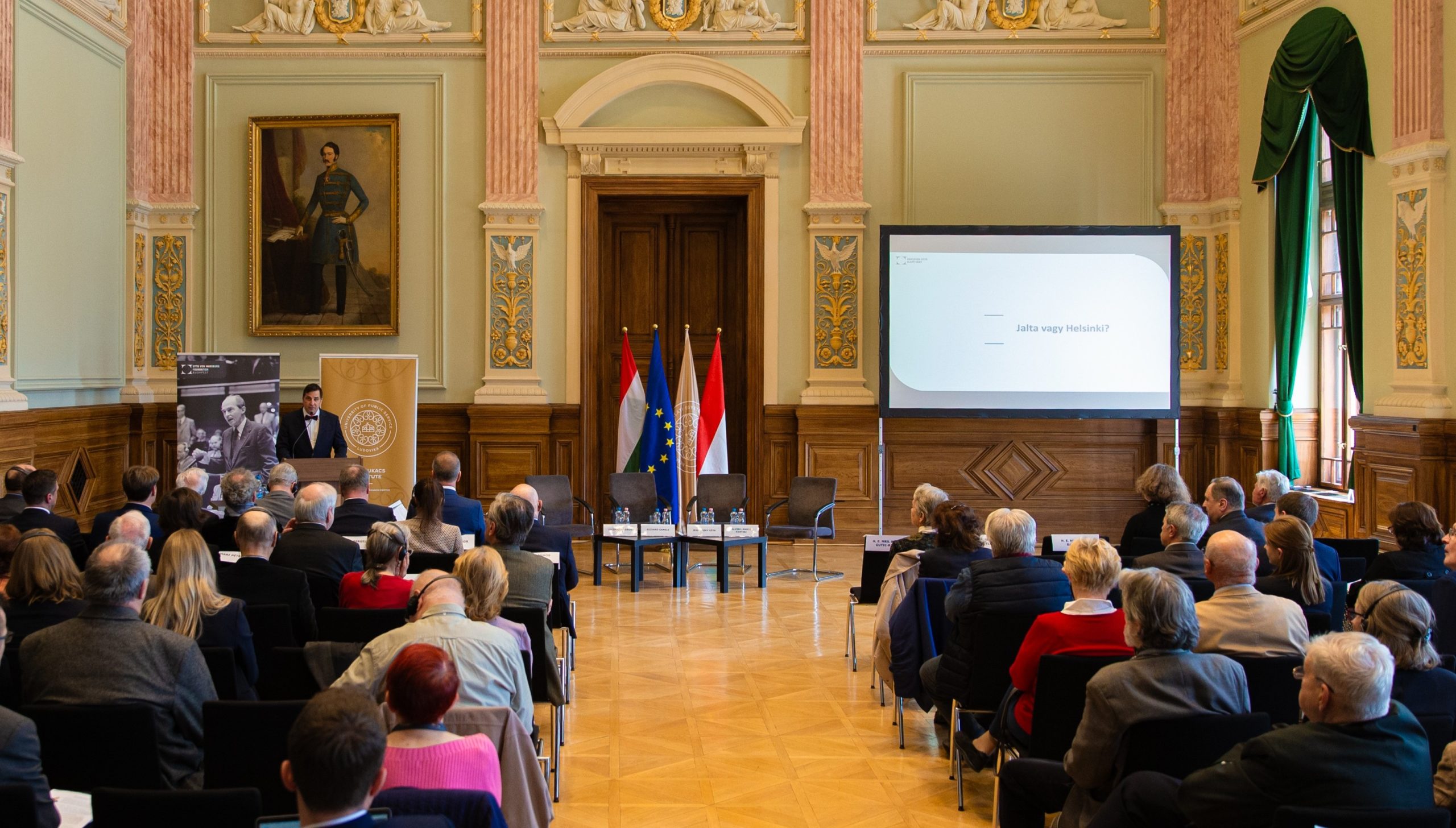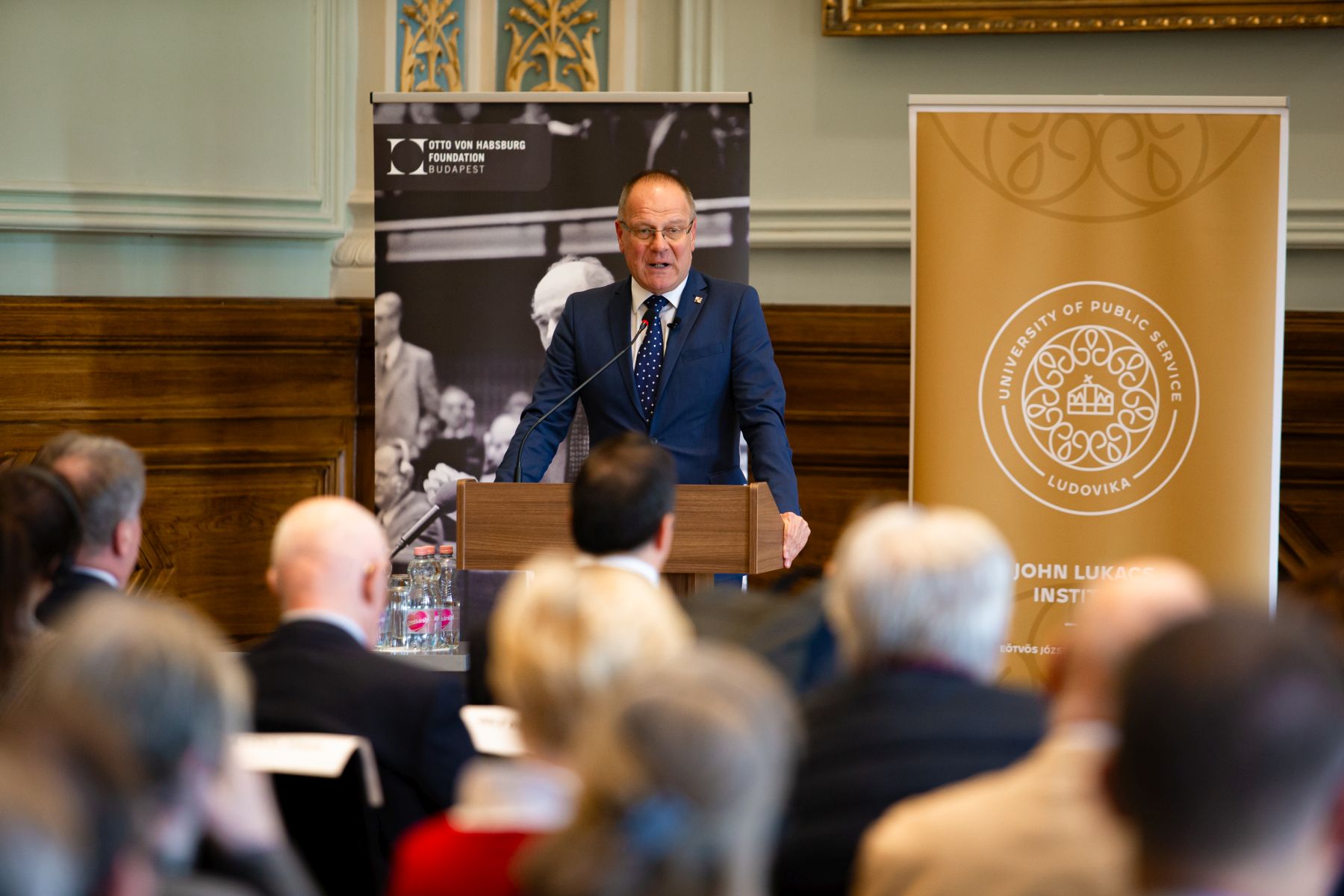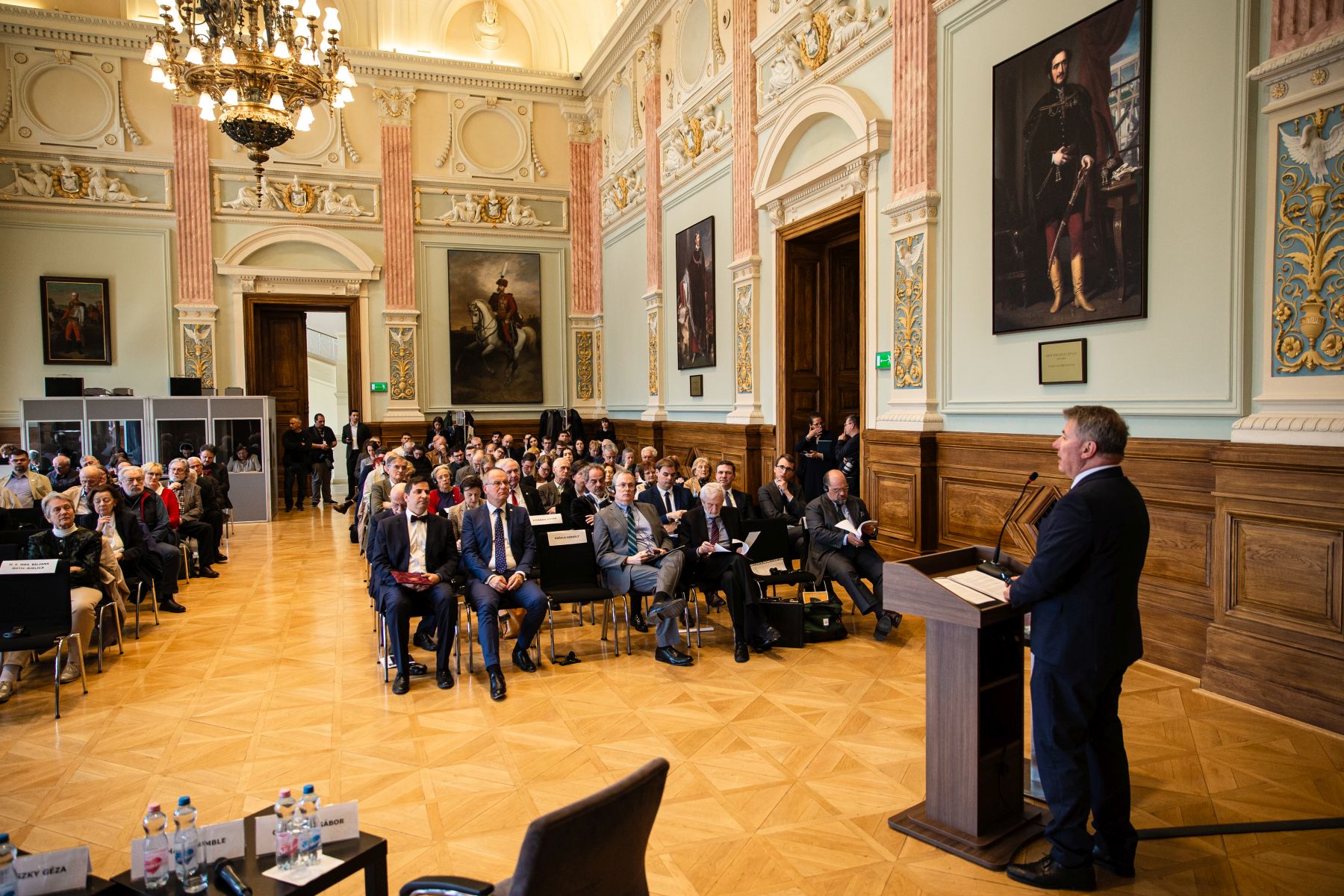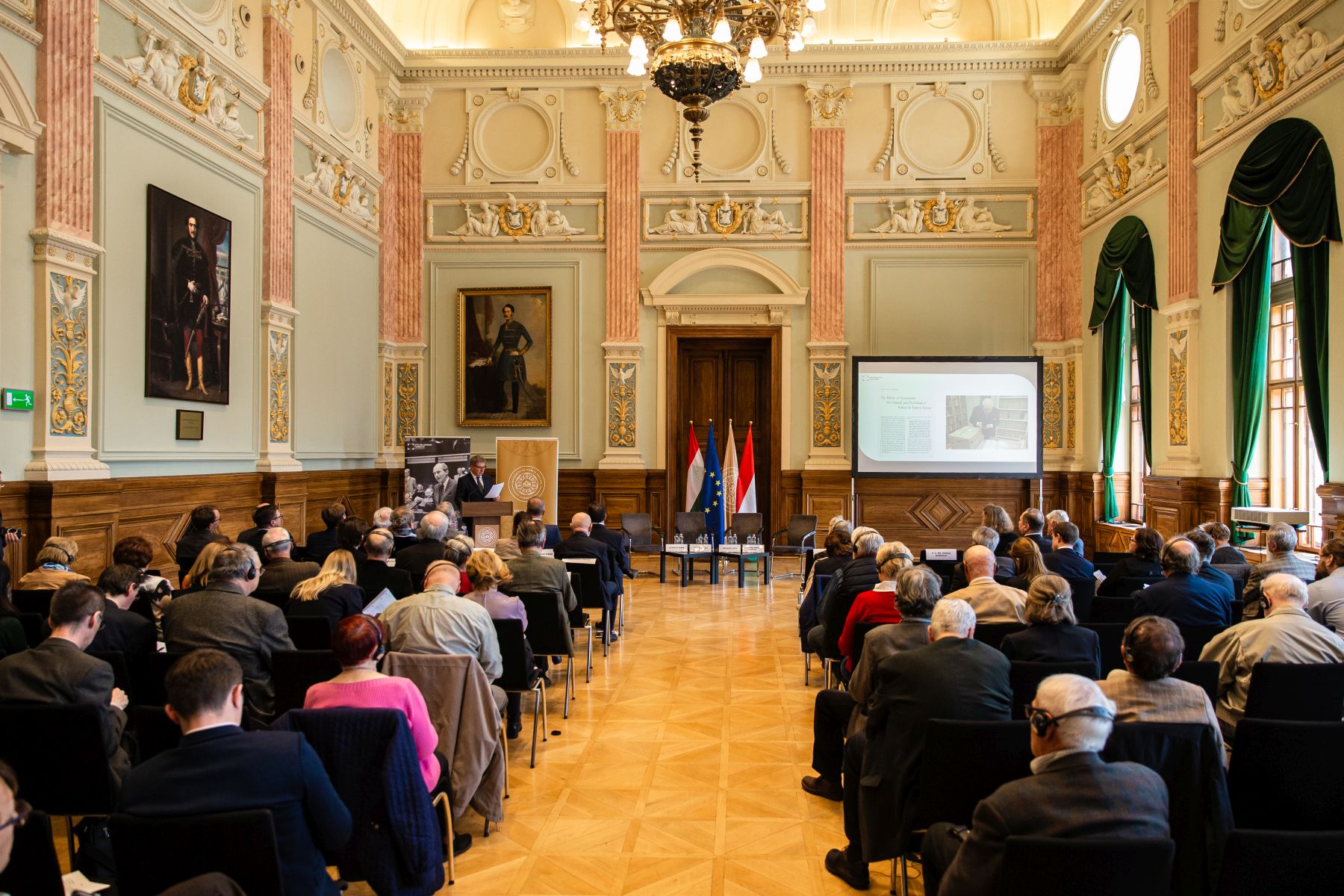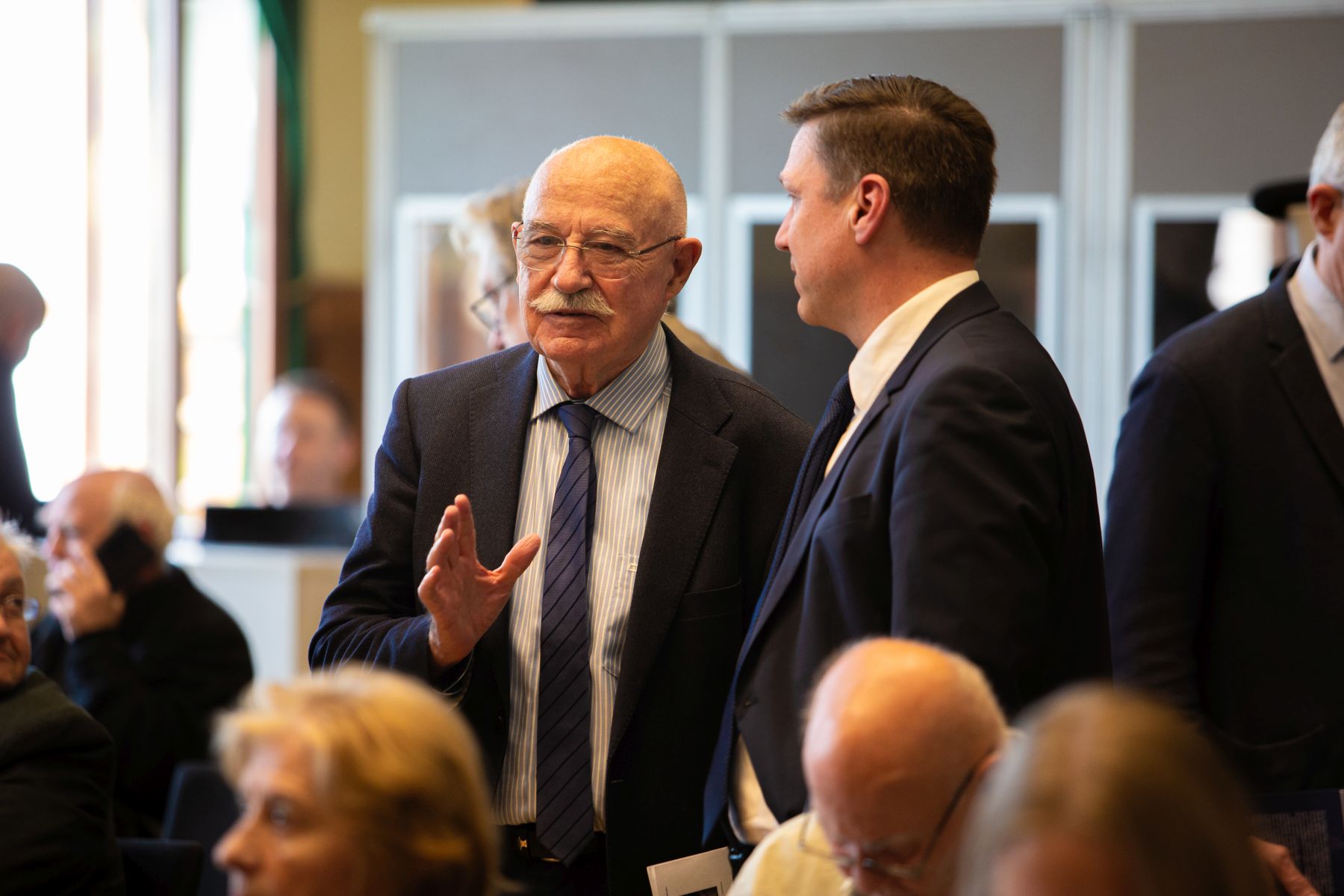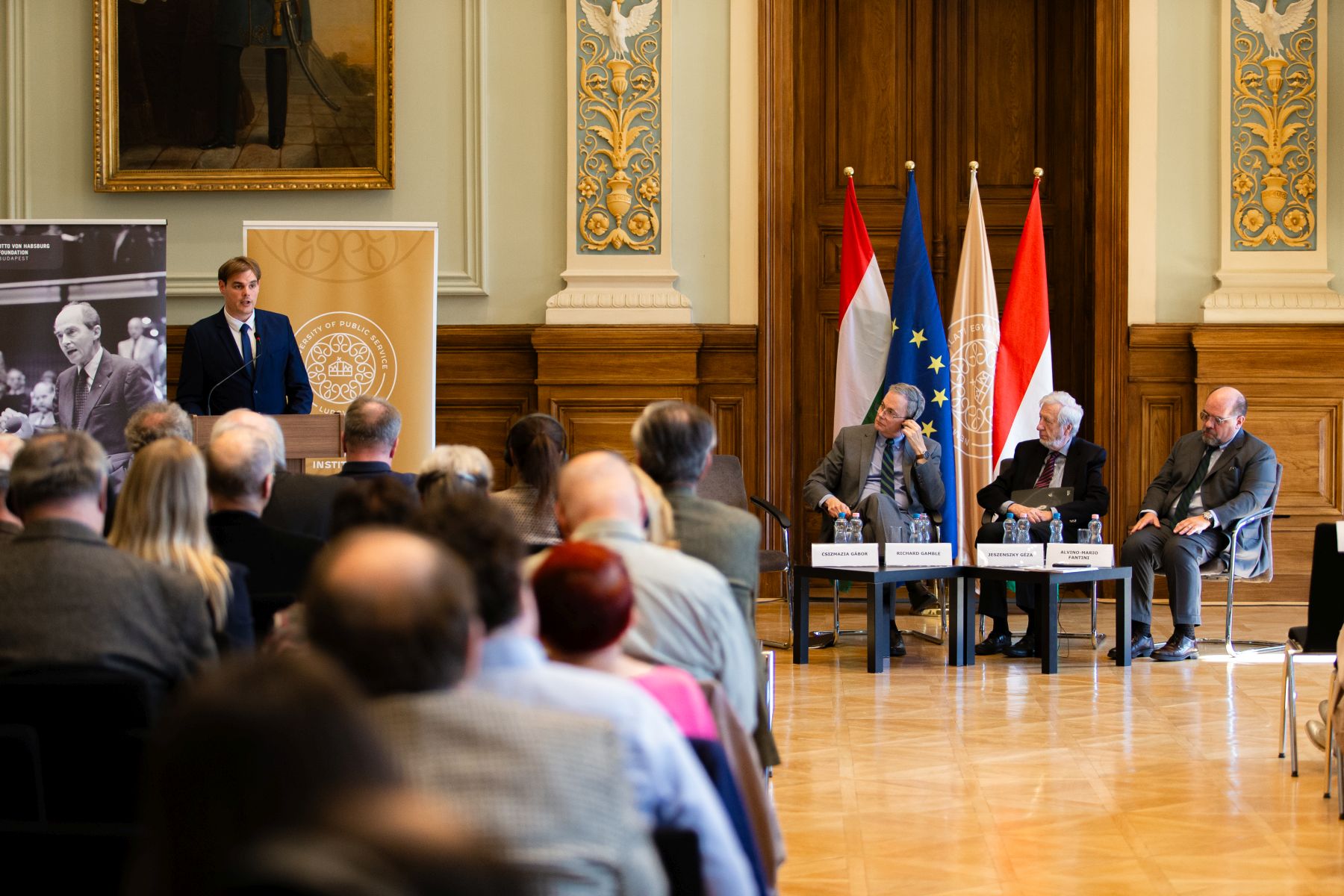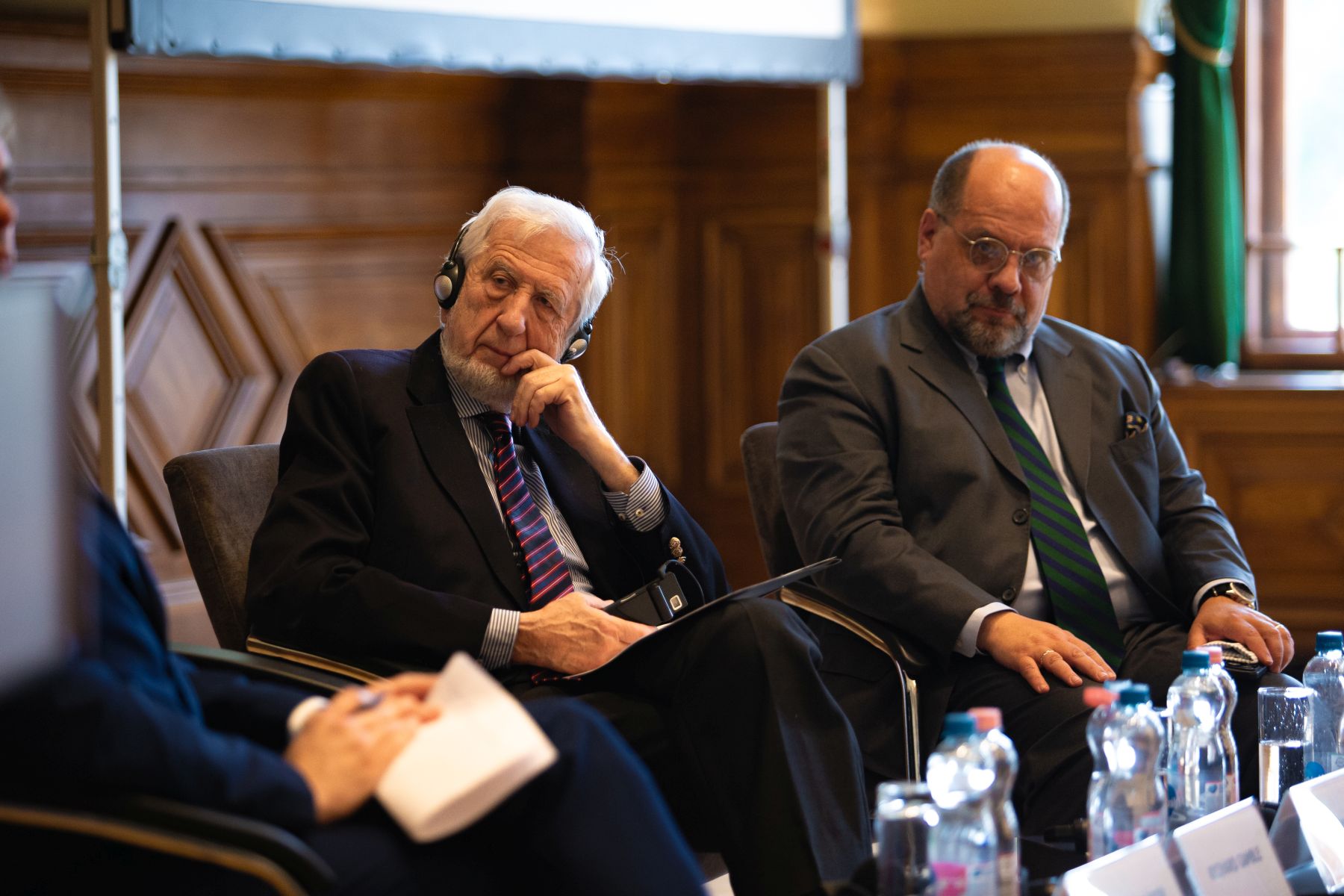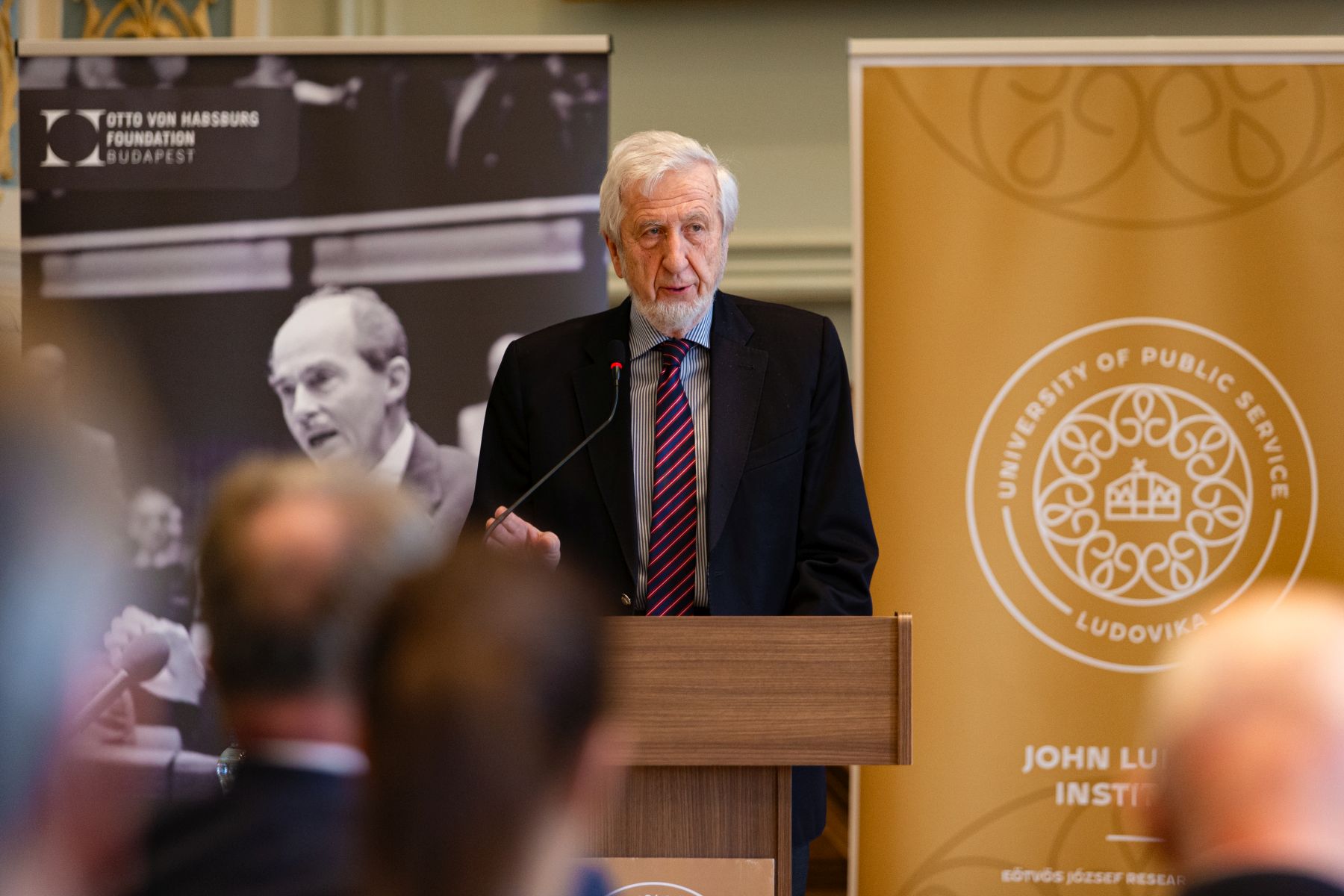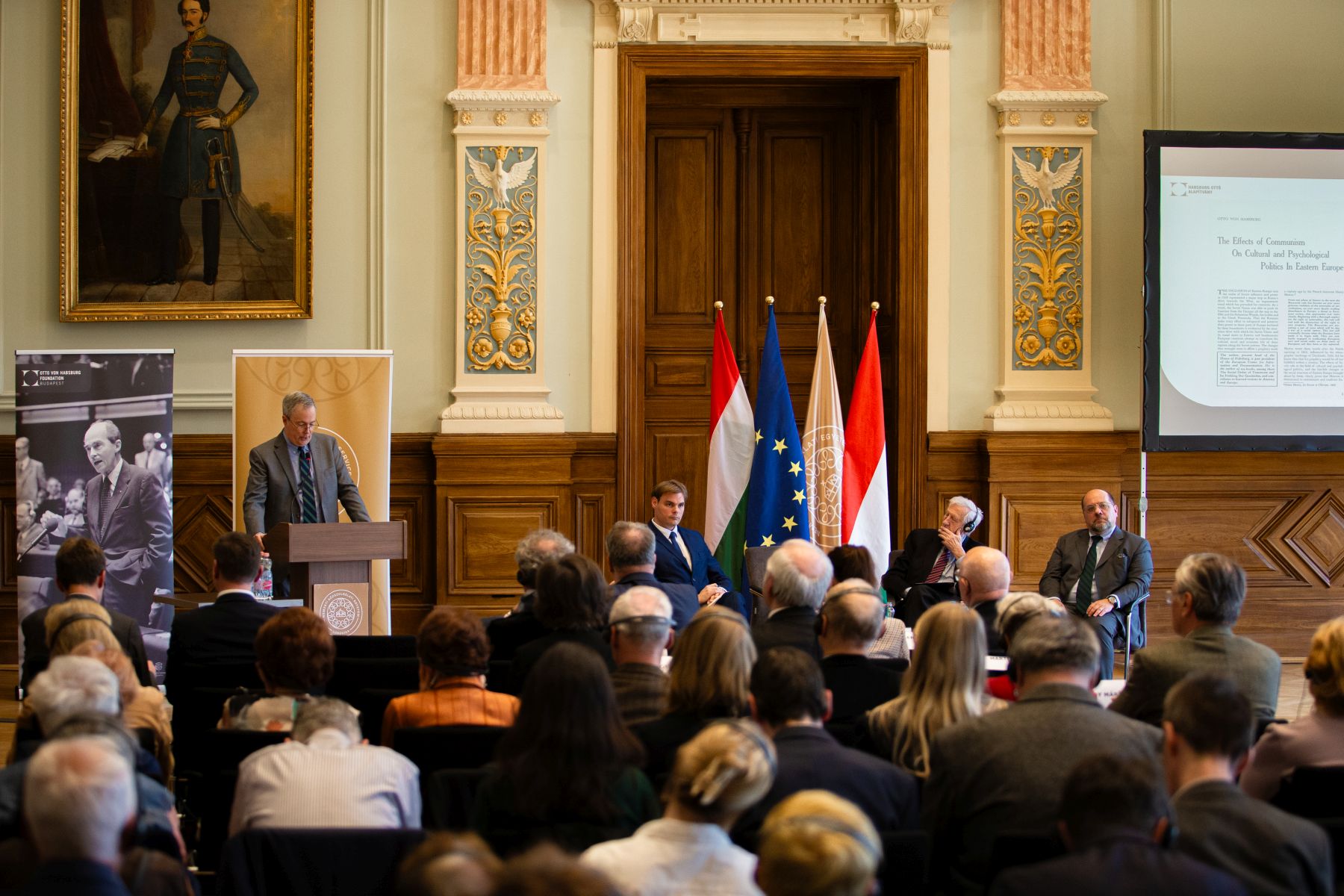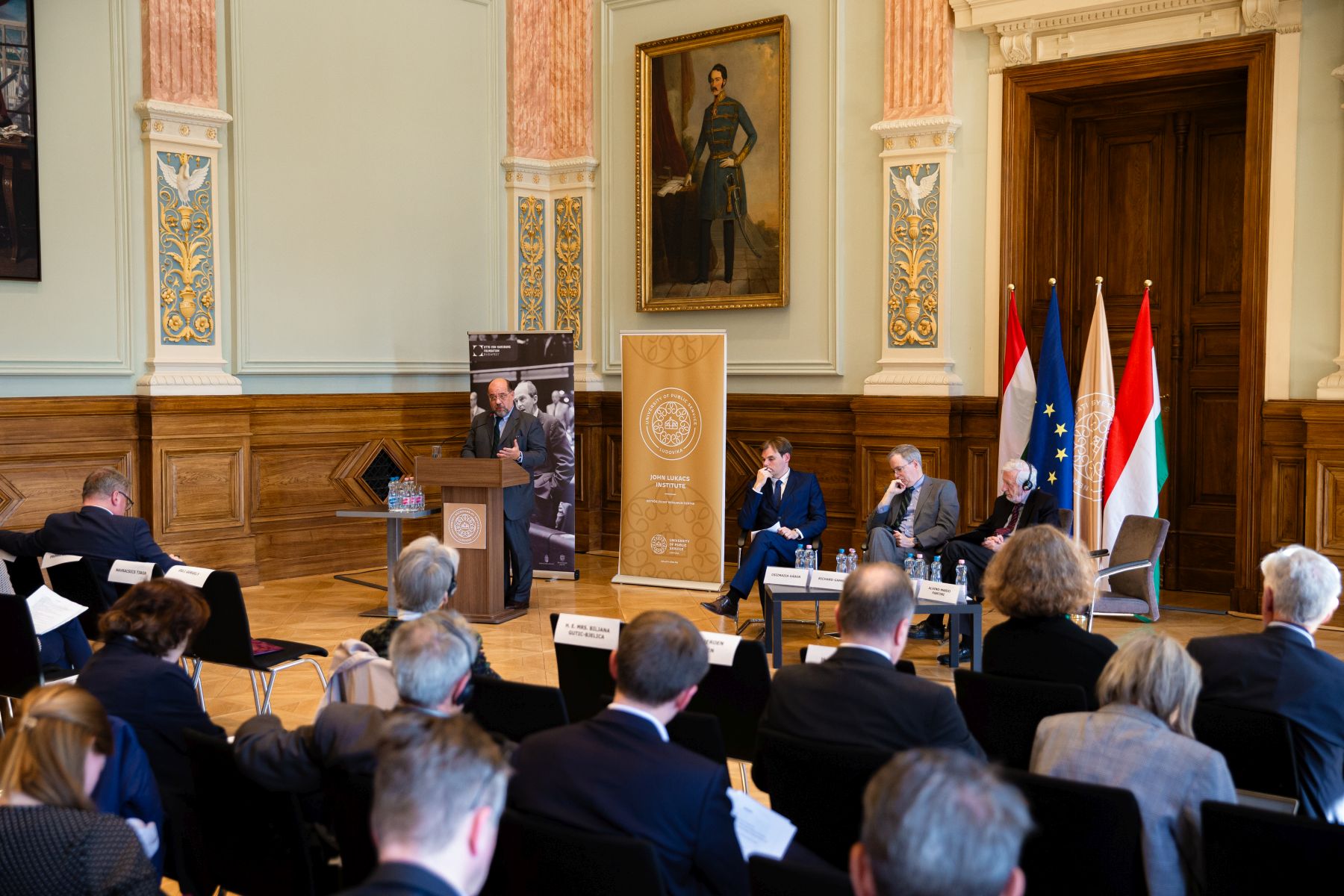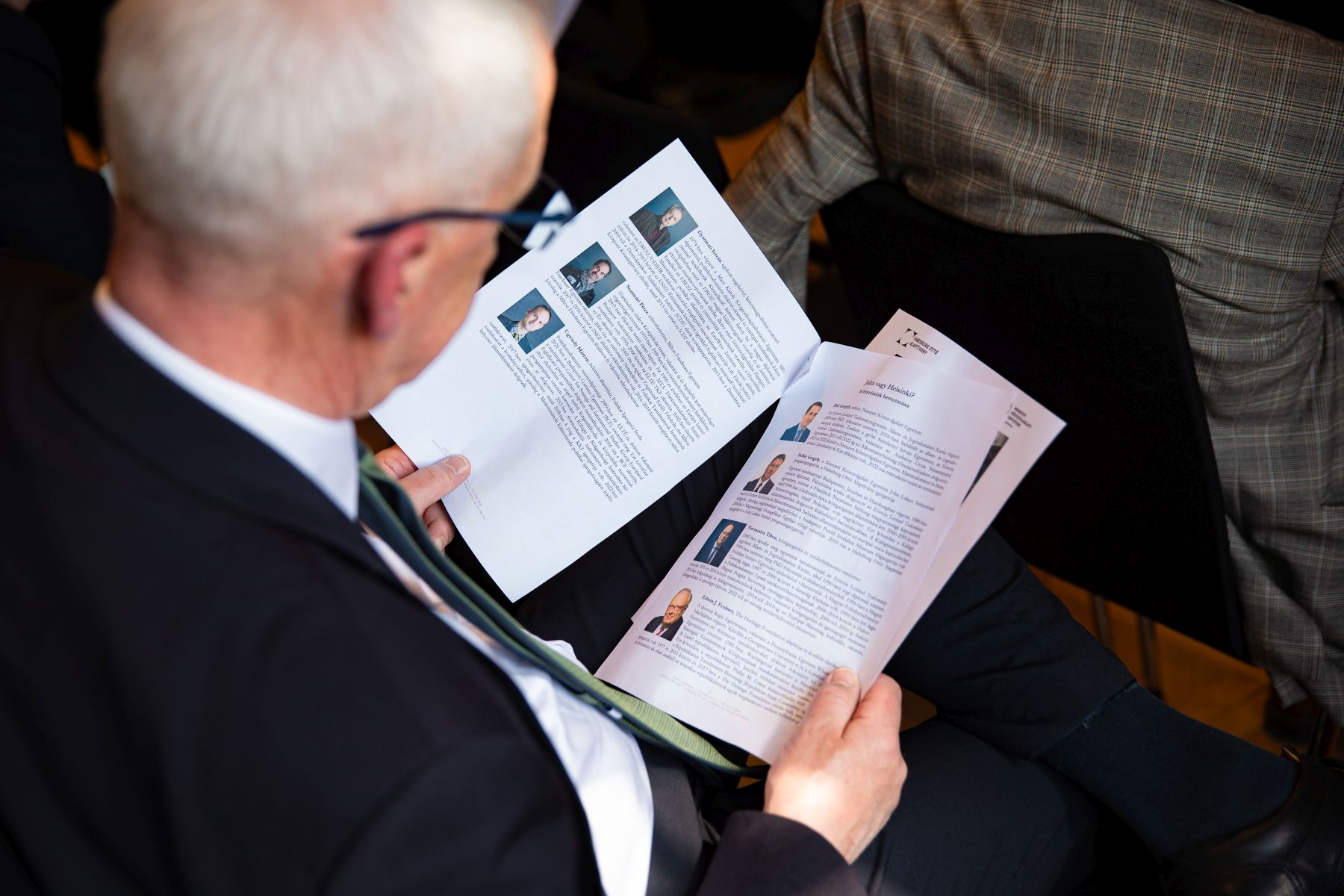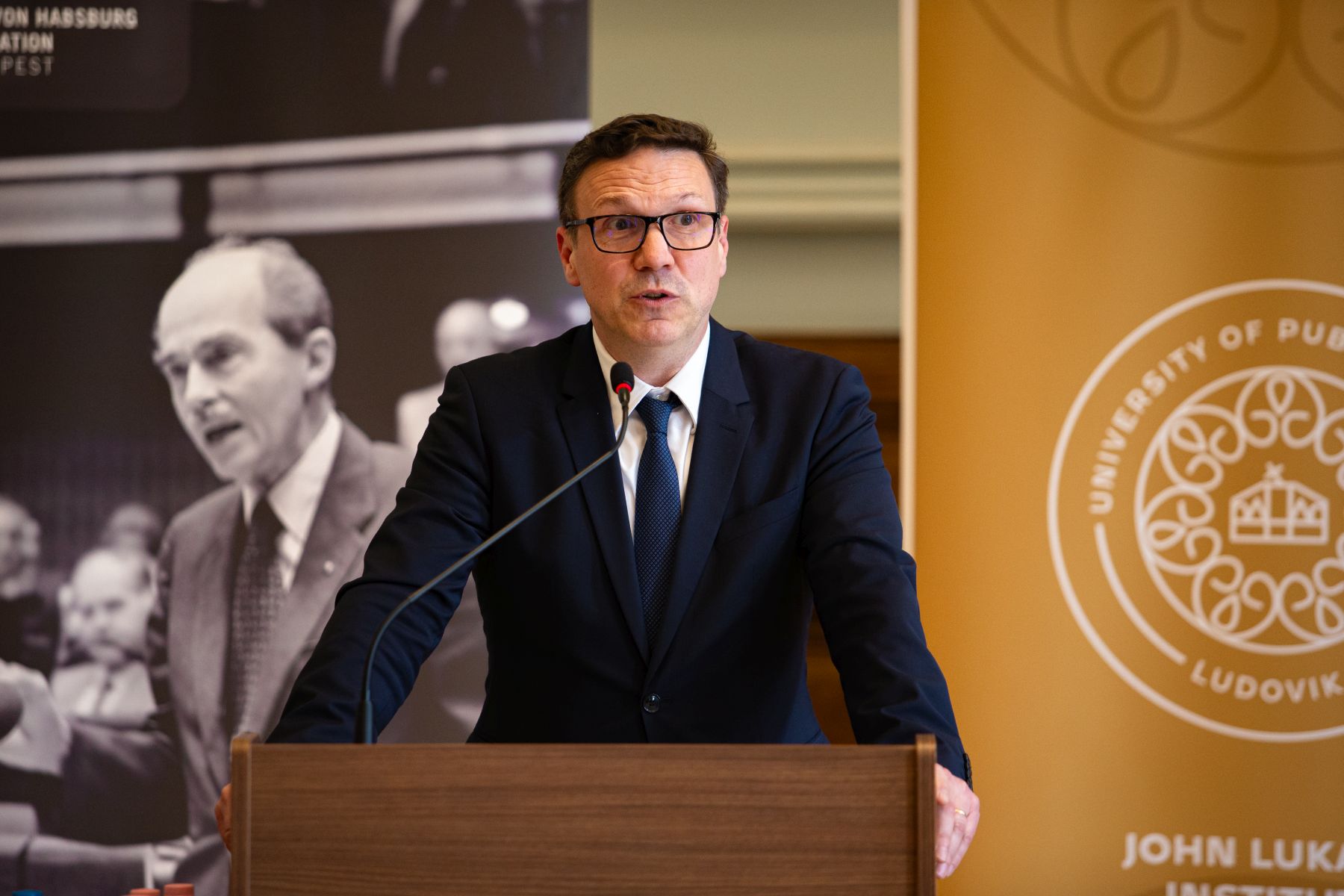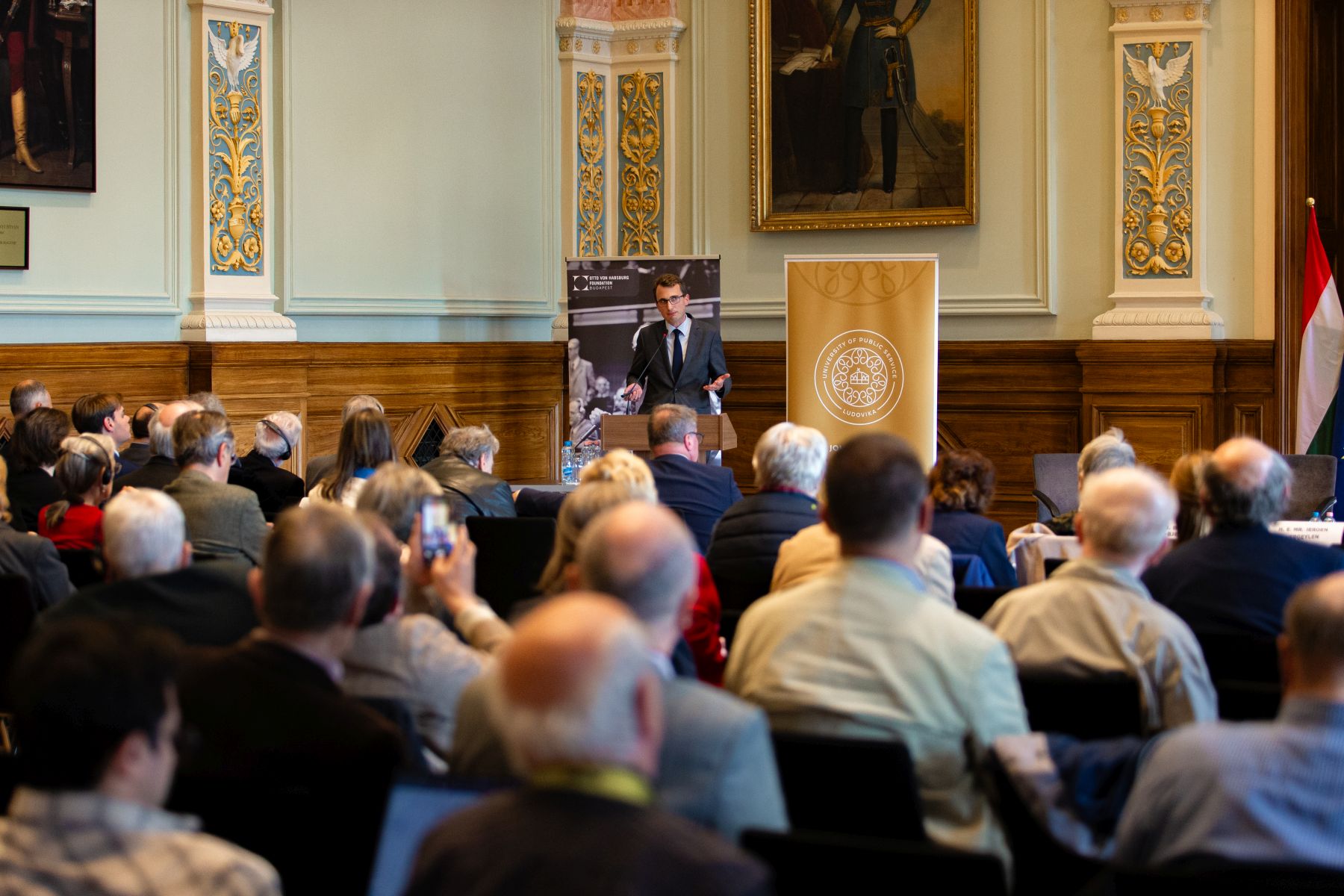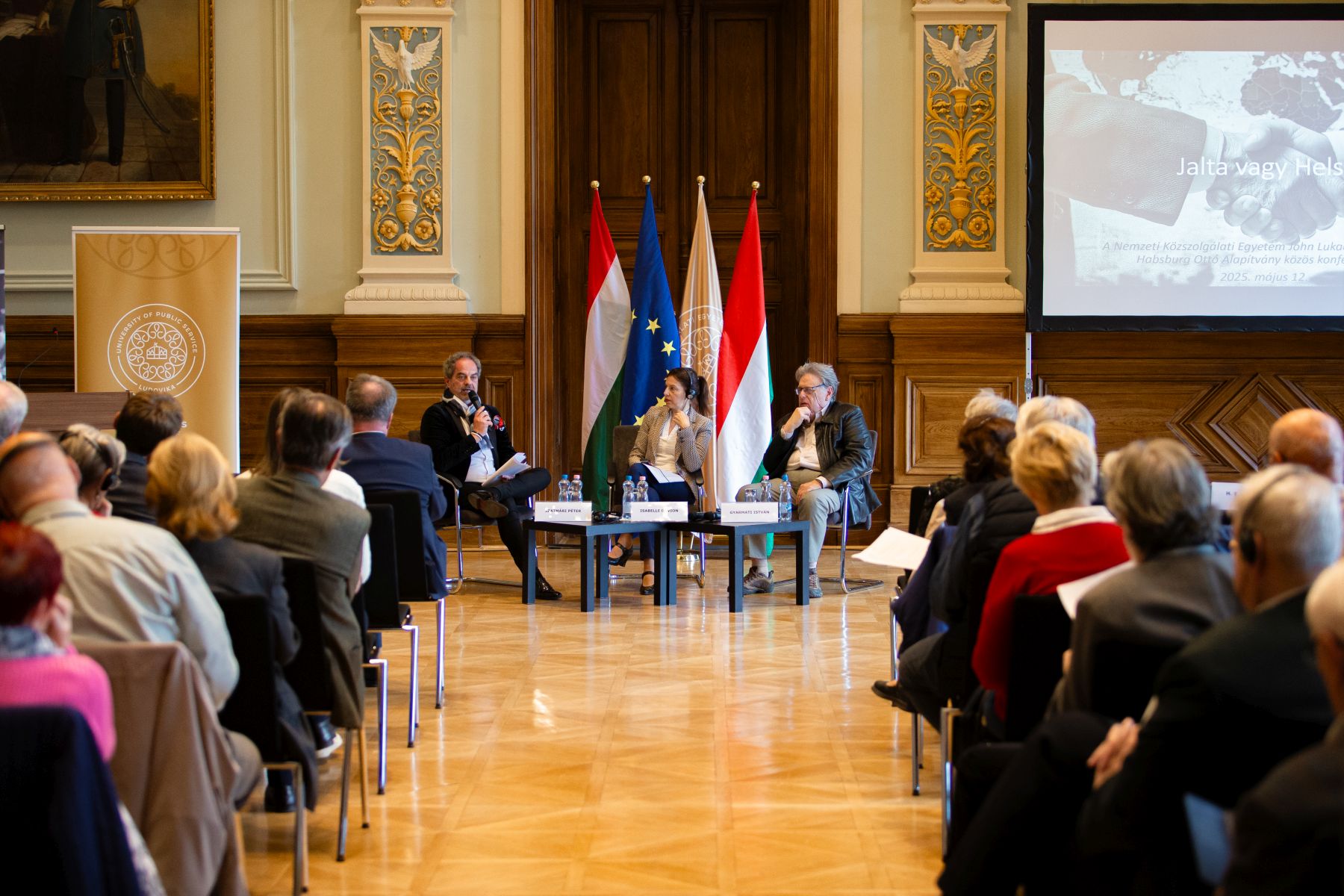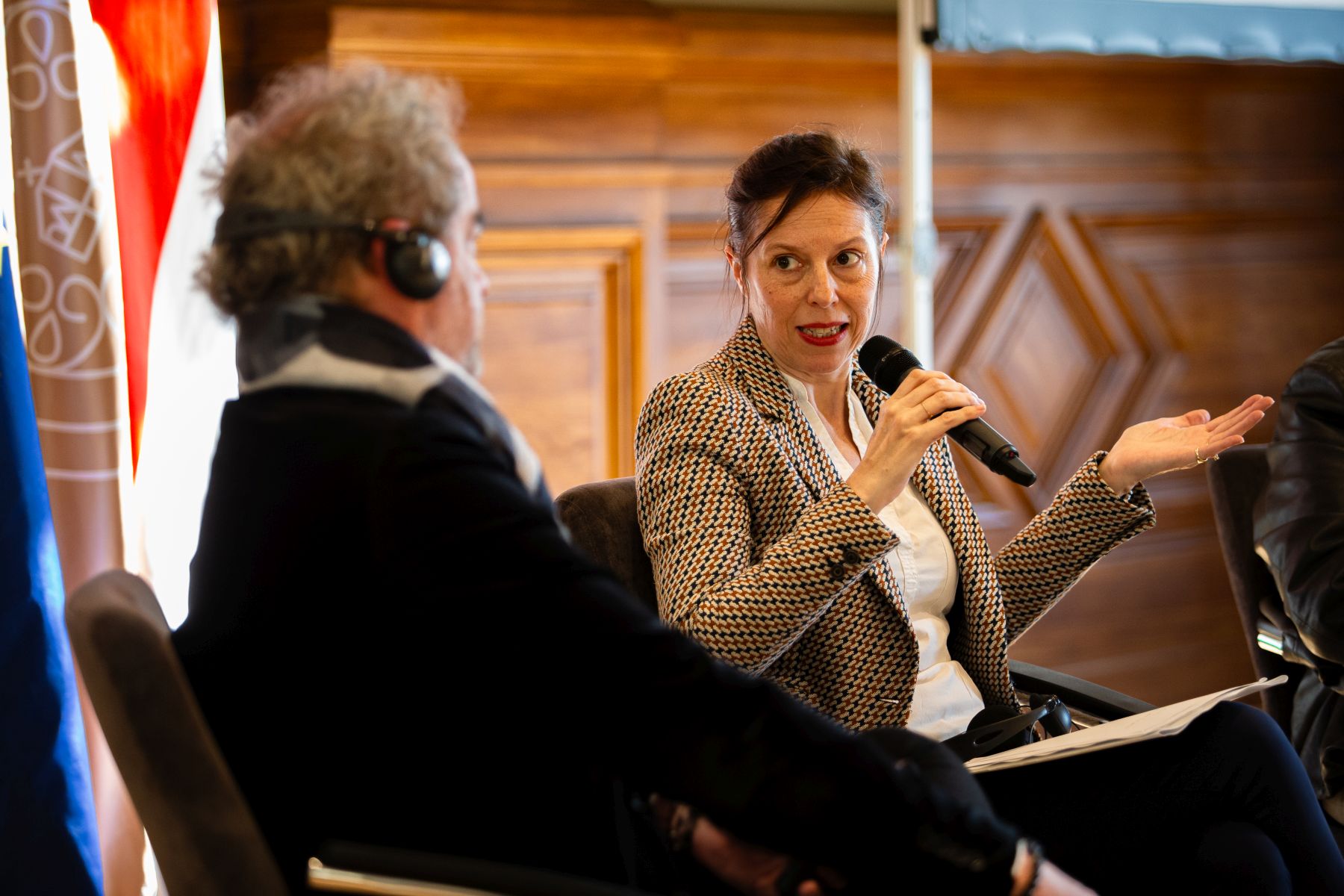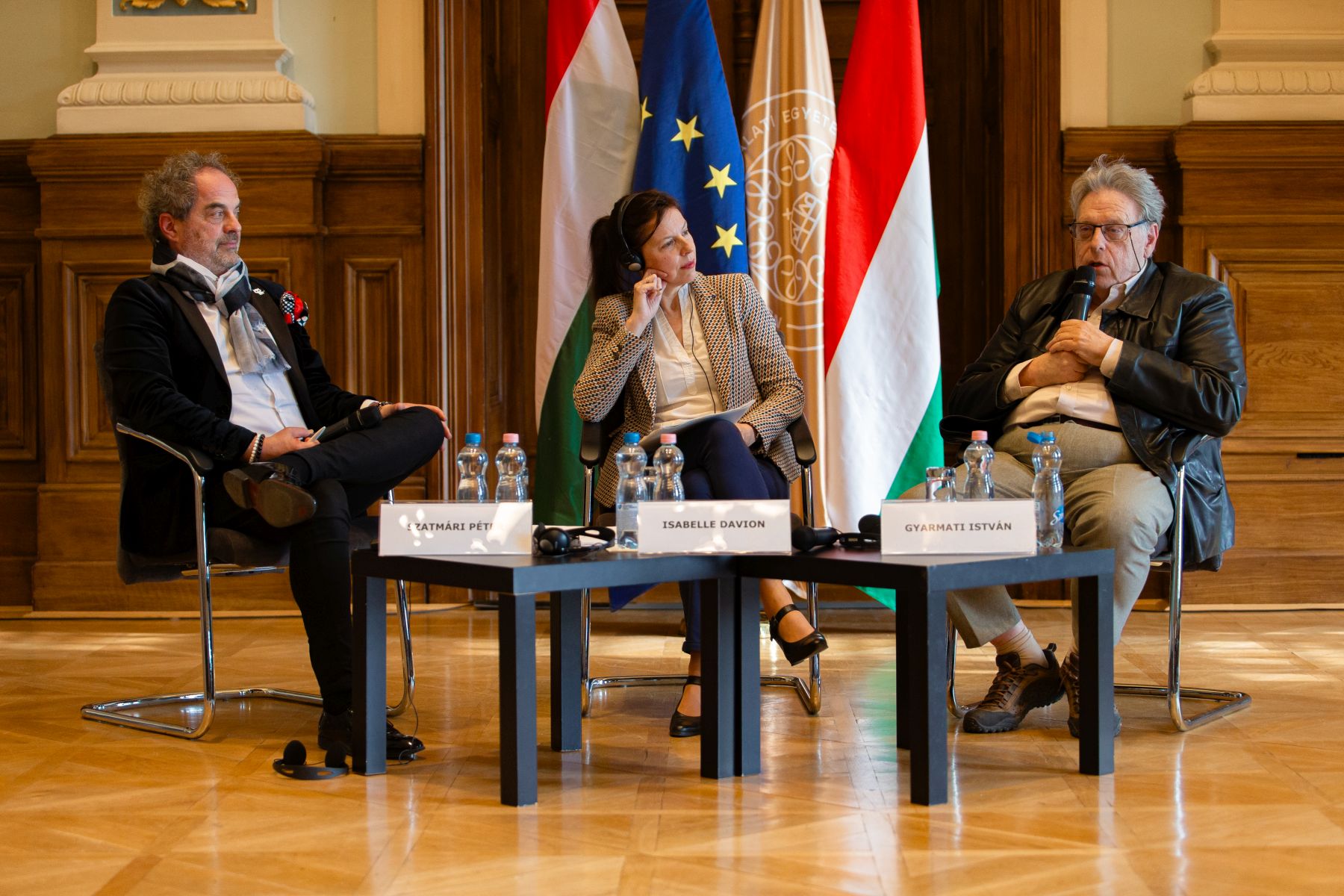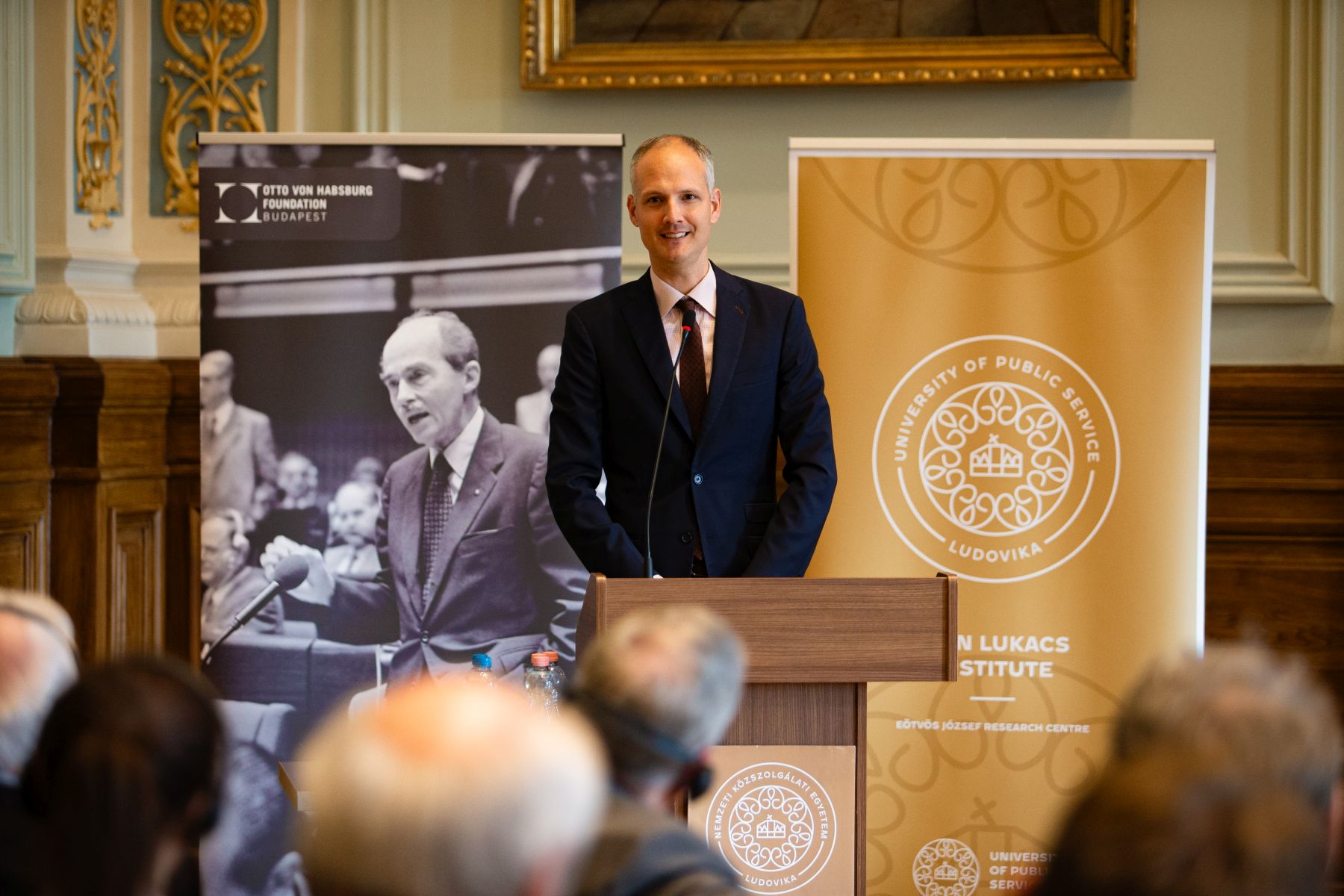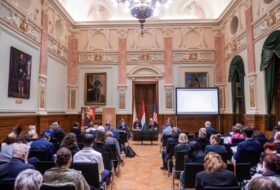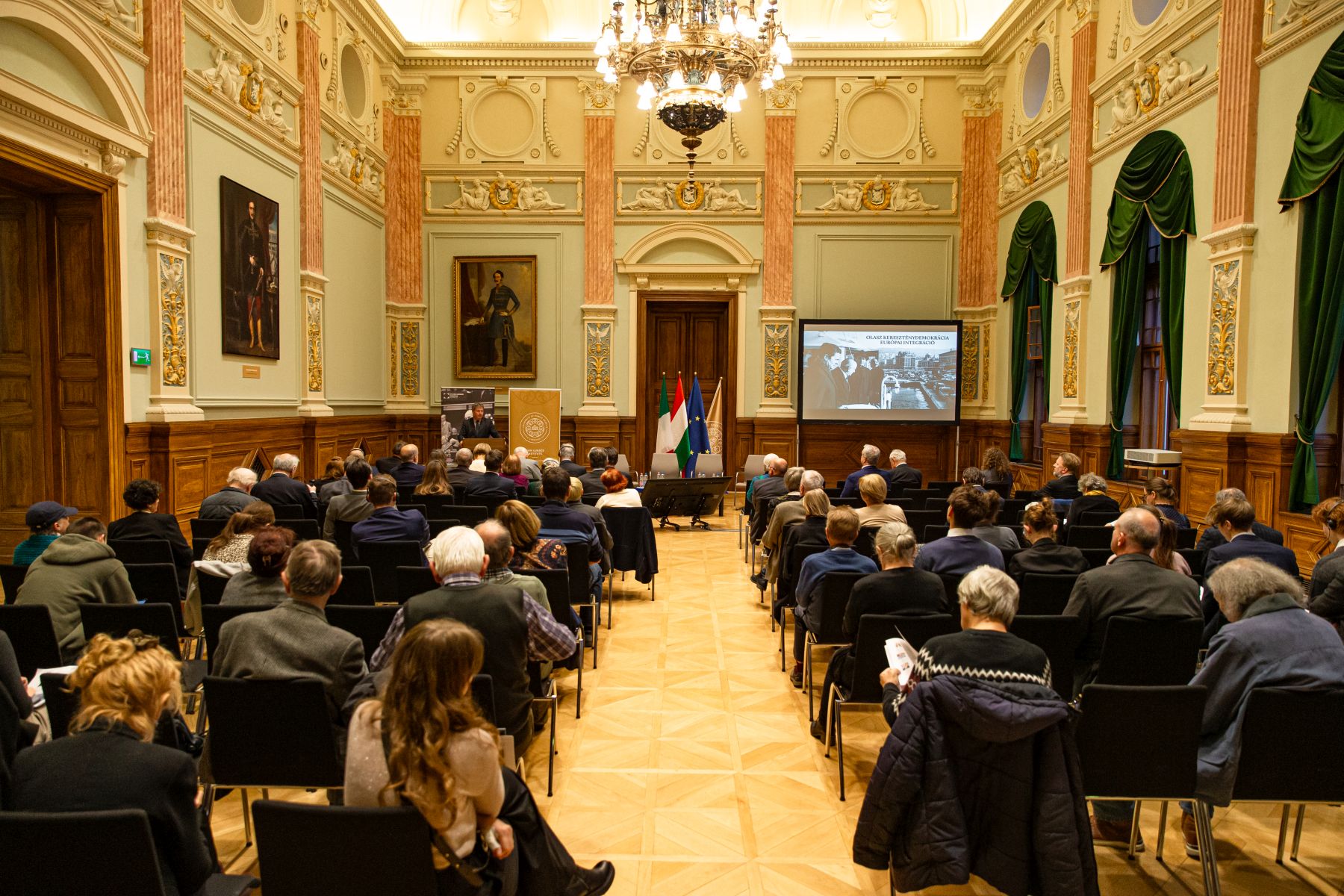Gergely Deli welcomed the audience in the Széchenyi Hall of the former Ludovika Academy. Referring to the title of the conference, he reminded the audience that one of the main goals of the institution’s training is to respond to the geopolitical challenges of our time by placing them in a historical perspective: “The further back we look, the further forward we see,” the rector of the Ludovika University of Public Service quoted Winston Churchill.
According to Tibor Navracsics, Minister of Public Administration and Regional Development, Yalta and Helsinki symbolise two different responses to the same geopolitical question: while the world order that took shape in the final months of the war represented closure, the diplomatic event 30 years later marked a kind of opening in the life of our continent. He drew the lesson from past events for the present day that only within a multilateral framework, as part of alliances and coalitions, does Hungarian foreign policy have any room for manoeuvre.
Gergely Prőhle, recalling the meeting held in 1995 under the title “50 Years of Peace – 5 Years of Freedom,” posed the following questions to the speakers to kick off the discussion: How do the participants view multilateral diplomacy today? Do they consider Russian expansion to be “genetically coded”? Furthermore, can the United States’ reactions be predicted in the current situation?
Before those addressed gave their responses, those present listened to a written message from Edwin J. Feulner, founder of The Heritage Foundation. The veteran American political analyst paid tribute to Otto von Habsburg, a staunch opponent of totalitarian regimes. In Feulner’s view, the former crown prince was one of those conservatives who spoke not of the importance of material goods – economic growth, wages, and living standards – but of the God-given value and dignity inherent in each individual, of the soul that needs constant nourishment. “There is no Gulag for the soul,” he quoted Otto’s famous 1966 essay, The Effects of Communism on Cultural and Psychological Politics in Eastern Europe. “The European Federation that Otto championed is not a technocratic laboratory. It is a garden to be kept and tended. In the same way, the “shining city upon a hill” is not a city. Or a faction. Or even a nation. It is every single soul,” Feulner concluded.
The first panel of the conference focused on the Atlanticist approach. Richard Gamble, professor at Hillsdale College, drew on quotations from John Lukacs to argue that the historian viewed Yalta as the final confirmation of a division that had already been determined by political and military fault lines, behind which lay factors that were less ideological than geographical. Historian and former foreign minister Géza Jeszenszky took his analysis back as far as Lajos Kossuth’s visit to the US in 1851. In his interpretation, the leader of the Hungarian emigration had already sensed the difficulties involved in defining the boundaries between European and American politics – a dilemma that became truly acute in the interwar period. The historian and politician regards it as a fatal mistake that the Allies did not impose conditions on the Soviet side in exchange for military support at Yalta. Helsinki, on the other hand, sowed the seeds of defeat for the Soviet Union in the long term, a fact that analysts, including Lukacs and Otto von Habsburg, had paid little attention to at the time.
Atlanticism is primarily a cultural and intellectual heritage that draws on the thousand-year-old treasure trove of Greek, Roman and Jewish traditions, and, therefore, should not be reduced to a mere geopolitical and strategic view, warned Alvino-Mario Fantini, editor-in-chief of The European Conservative. The Italian historian of ideas and journalist described the influence of this ideology as extending across the entire American continent in geographical terms. In this coordinate system, Yalta was equivalent to the betrayal of Western Christianity, while Helsinki was synonymous with legitimising Soviet influence – in other words, both events highlighted the weaknesses of Atlanticism.
Members of our Foundation presented Otto von Habsburg’s assessment of Yalta and Helsinki. Deputy Director Gergely Fejérdy interpreted the – at first glance surprising – statement made by our namesake, who claimed that Russia was the biggest loser at Yalta, as its focus on Europe distracted the country’s attention away from the Far East, primarily from the rising power of China. In the long run, the division of the Old Continent stimulated the integration of Western territories, which, after the fall of communism, led to the return of Central Europe to Western Christian civilisation, in Hungary’s case, with joining NATO in 1999 and its accession to the EU in 2004.
Bence Kocsev’s line of thought started from the premise that Otto von Habsburg’s view of society was defined by tranquilitas ordinis (the tranquillity of order), which was based on the rule of law, the recognition of human dignity, the right to national self-determination, and clearly defined moral norms. The Yalta system rejected these principles, and even the Helsinki Final Act did not overturn the Cold War status quo. At the same time, Otto von Habsburg had keenly recognised that the Helsinki process was not merely a continental bargain, but part of a global realignment of power, which, during the ostensibly uneventful years of the 1970s, increasingly highlighted not only the East-West divide but also the North-South dichotomy, posing serious institutional dilemmas for high politics with its geopolitical and geo-economic challenges. The conservative responses to these issues led to a decisive breakthrough in the history of our region and the world in the 1980s.
The discussion, which analysed the continental approach to the topic, was moderated by Péter Szatmári, Vice-Rector of Milton Friedman University. Isabelle Davion’s lecture pointed out that the French assessment of Yalta differs slightly from the general discourse. In the decades between the two wars, the future two great powers were weightless factors in European politics. However, 1945 brought a radical change: the United States was confronted with the responsibility of the disappearance of Britain and France from world politics and the Soviet Union’s presence in Central Europe. According to the Sorbonne University professor, the post-war settlement was not at all confrontational because the Soviet side was primarily concerned with the western side of the continent, and the confrontation narrative was mainly that of De Gaulle, who had objected to being left out of the negotiations. On Russia’s present-day policy of territorial acquisition, Davion’s opinion is that Putin is trying to “re-enact” the Great Patriotic War in a situation that is the exact opposite of that of 80 years ago, without realising that the Yalta framework has been superseded.
Former Ambassador István Gyarmati examined the veracity of some statements taken as evidence by public opinion and discourse. He identified Europe’s biggest mistake as the prevalence of an inferiority complex, which, for reasons of convenience and economy, disregards the realities of the division of military expenditure between the continent and the United States, strategic planning, and economic conflicts. However, the current divergence between Europe and the US is only temporary: their interdependence will sooner or later lead to a return to cooperation, albeit in a modified form, he predicted.
“The Yalta conference was the first moment in history when Europe was not the subject but the object of world politics”, said Márton Ugrósdy, Deputy State Secretary of the Prime Minister’s Office, in his closing remarks. He interpreted the event in the light of current international power relations, in particular the shift in global power centres and the new dynamics of competition between great powers, which, at the same time, raise fundamental questions about Europe’s autonomous strategic role.
